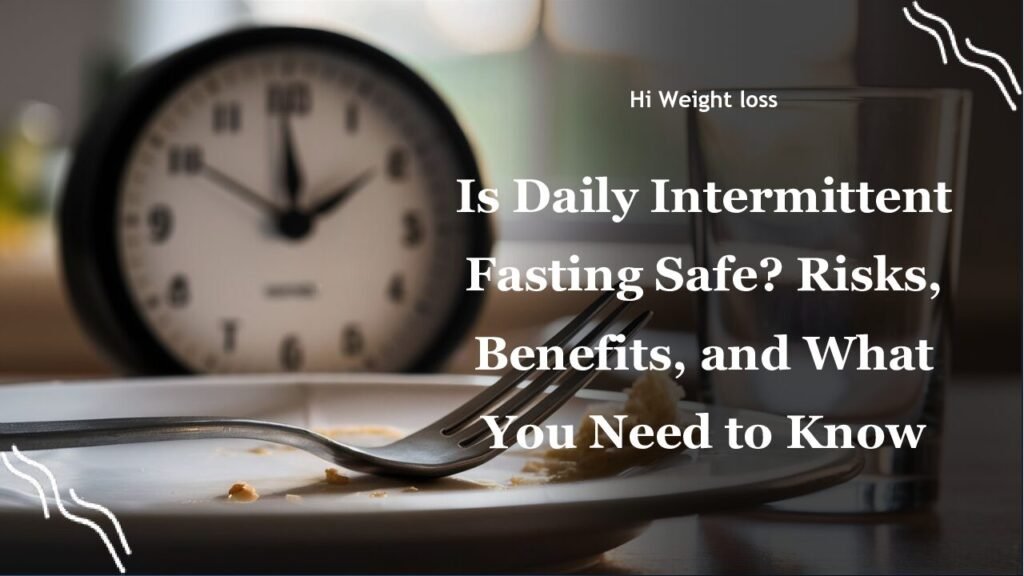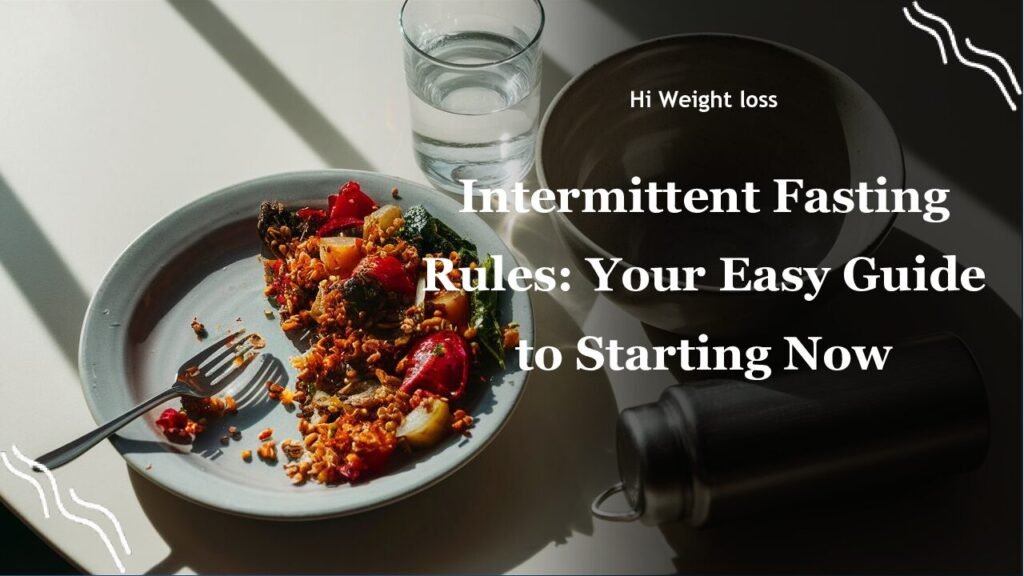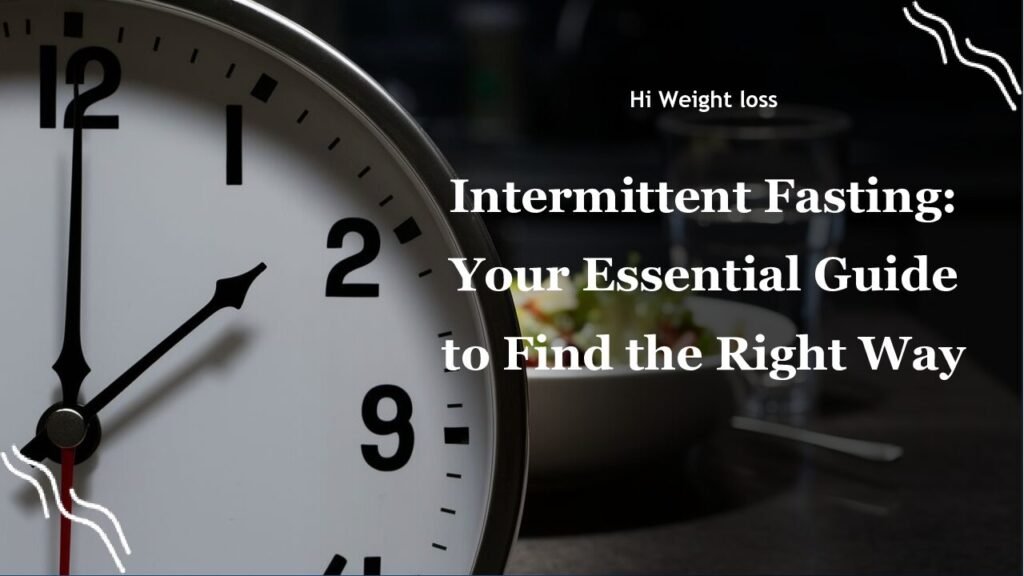“`
Feeling like you’re constantly battling the bulge, wondering if daily intermittent fasting is the magic bullet? Many people are drawn to the promise of weight loss and better health, but is it really safe to make intermittent fasting a daily habit? This article will explore the potential benefits and risks of daily intermittent fasting, helping you understand if it’s the right choice for you, and whether it is truly okay to intermittent fast every day.
Is It Okay to Intermittent Fast Every Day?
Understanding Daily Intermittent Fasting
Intermittent fasting, often referred to as IF, isn’t about what you eat, but when you eat. The most common approach to daily intermittent fasting is time-restricted eating, typically involving a 16-hour fasting period and an 8-hour eating window. But before you jump in, it’s crucial to understand if this daily routine is suitable for you.
Potential Benefits of Daily Intermittent Fasting
Many people try daily intermittent fasting for weight management, and for some it works. Some studies suggest it might help with weight loss and improving metabolic health. I remember a friend telling me how she found it easier to manage her calorie intake within a set eating window, without having to think about food all day long. It definitely simplifies meal times for her!
Some early research also suggests potential benefits in terms of blood sugar control and insulin sensitivity. It’s important to note, however, that the long-term effects of daily intermittent fasting are still being studied, and what might work well for one person may not work for another.
The Risks of Daily Intermittent Fasting: A Closer Look
While intermittent fasting has gained popularity, it’s essential to be aware of potential risks, particularly when practiced daily. A recent study from the American Heart Association, for instance, highlighted a concerning link between an 8-hour time-restricted eating schedule and a 91% higher risk of death from cardiovascular disease compared to those with a longer eating window.
That’s something that made me reconsider my intermittent fasting plans, I have to say! These findings are prompting many to question the long-term safety of daily fasting. It emphasizes how important it is to do your own research, consider your own health background and be cautious when considering any dietary change, particularly when daily intermittent fasting is concerned.
It’s also important to remember that daily fasting might not be suitable for everyone. For example, if you’re under 18, or pregnant or breastfeeding, or you have certain medical conditions like type 1 diabetes or a history of eating disorders, daily intermittent fasting is not recommended, according to the Mayo Clinic.
The fact is that while some people may find daily intermittent fasting beneficial, it is crucial to consult with a healthcare provider before starting any fasting regimen, especially if you have pre-existing health conditions or concerns about cardiovascular health. It’s better to be safe than sorry, right?

Daily Intermittent Fasting and Cardiovascular Health
The recent study from the American Heart Association really highlighted how important it is to understand the risks associated with daily intermittent fasting. The study shows a 91% increase in cardiovascular death among individuals who followed an 8-hour time-restricted eating schedule.
This shows that daily 16/8 fasting isn’t for everyone and careful consideration must be given before starting this diet, with a particular emphasis on heart health. When we focus on what’s right for us, it means asking the right questions, and that includes checking with health experts.
Who Should Avoid Daily Intermittent Fasting?
As mentioned earlier, certain groups of people should avoid daily intermittent fasting. These include:
- Individuals under 18
- Pregnant or breastfeeding women
- People with type 1 diabetes
- Those with a history of eating disorders
It is very important to prioritize health. If you have any concerns or health conditions, consult with your doctor before starting intermittent fasting. It’s always better to err on the side of caution.
Making Informed Decisions About Daily Intermittent Fasting
If you’re thinking about trying daily intermittent fasting, it’s vital that you make an informed decision. Do your research, understand the potential benefits and risks, and consider your own health background. Here’s a quick recap of the main points to consider:
| Consideration | Details |
| Potential Benefits | Weight loss, improved metabolic health (early research). |
| Risks | Potential increased risk of cardiovascular death, not suitable for certain individuals. |
| Who should avoid | Under 18, pregnant/breastfeeding, type 1 diabetes, history of eating disorders. |
| Consult with Healthcare Provider | Essential before starting any fasting regimen. |
The most important thing is that daily intermittent fasting should not be undertaken without due diligence. Make sure that you consider everything and consult with healthcare professionals first. Your well-being is the most important thing and you must take the necessary steps to protect your health and wellness.
Conclusion
So, is it okay to intermittent fast every day? The answer, as you’ve probably gathered, isn’t a simple yes or no. While some people may experience benefits from daily intermittent fasting, such as weight loss and metabolic improvements, recent research has raised concerns about its long-term safety, particularly regarding cardiovascular health. The study from the American Heart Association, with its startling 91% increase in cardiovascular death risk for people following the 8 hour time-restricted eating schedule, is definitely something to bear in mind.
It’s vital to listen to your body, do your research and, most importantly, consult with a healthcare professional before making any significant changes to your diet, especially if you have any pre-existing conditions. The key takeaway is that what works for one person might not work for another, and we must always take a balanced and health conscious approach. It’s about making informed choices, not just following trends. So, take the time to consider everything, and you’ll be on the right path to better health.
Share this article with anyone you know who’s considering daily intermittent fasting. Let’s start a dialogue and help people make informed decisions!
FAQ
Is intermittent fasting safe for everyone?
No, it’s not. Intermittent fasting is not recommended for individuals under 18, pregnant or breastfeeding women, and those with certain medical conditions, such as type 1 diabetes or a history of eating disorders.
What is the most common approach to daily intermittent fasting?
The most common approach is time-restricted eating, typically involving a 16-hour fasting period and an 8-hour eating window, often referred to as the 16/8 method.
What are the potential risks of daily intermittent fasting?
Recent studies suggest potential risks, particularly regarding cardiovascular health. One study by the American Heart Association found a 91% higher risk of death from cardiovascular disease in individuals following an 8-hour time-restricted eating schedule compared to those eating across a 12-16 hour window.
Should I consult with a healthcare provider before starting intermittent fasting?
Yes, absolutely. Consulting with a healthcare provider is crucial before starting any fasting regimen, especially if you have pre-existing health conditions or concerns about cardiovascular health.
What are the potential benefits of daily intermittent fasting?
Some early research has indicated potential benefits for weight loss and metabolic health, however more long-term studies are needed to fully understand the full impacts of daily intermittent fasting.
“`



